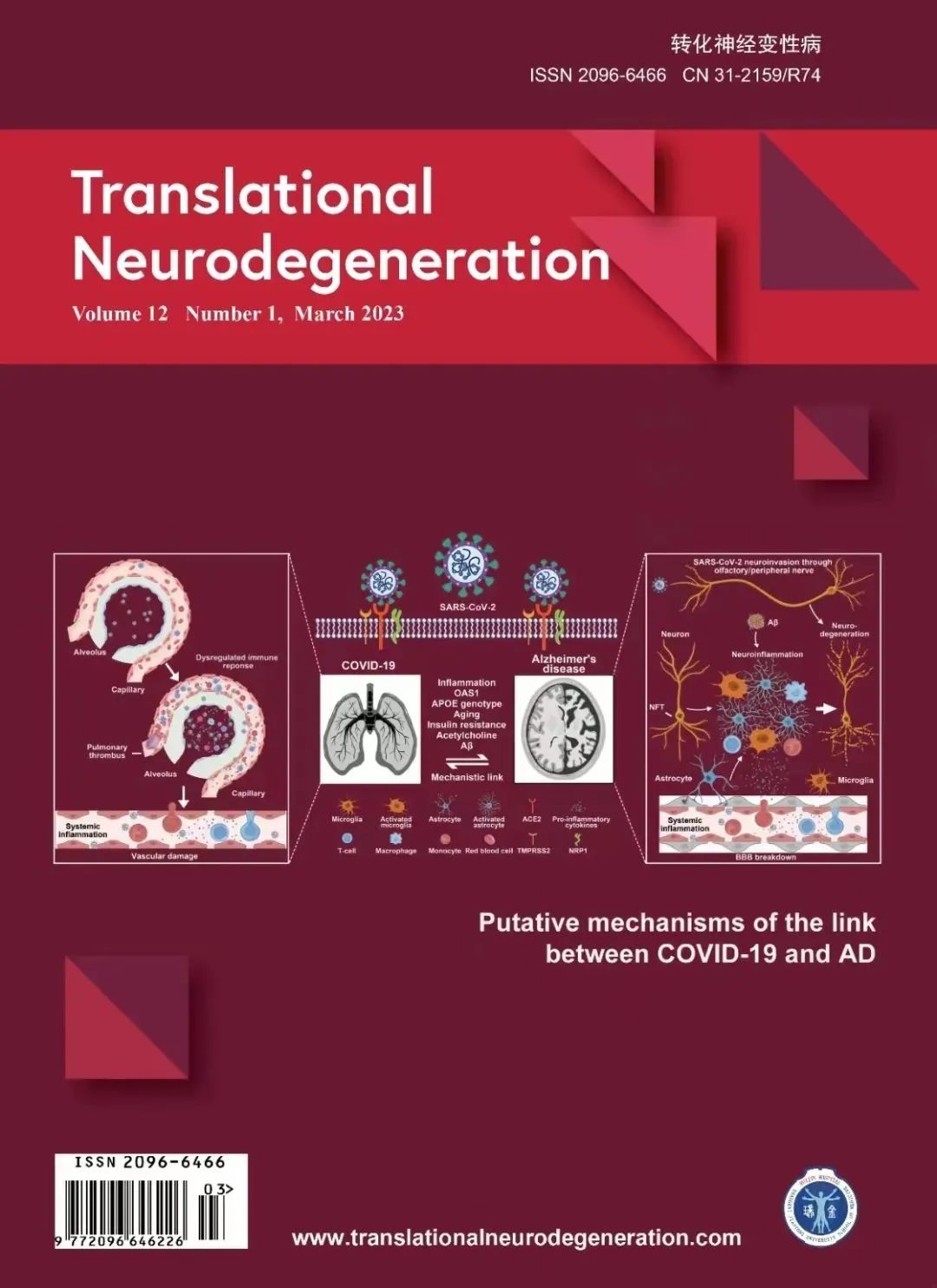Blockage of VEGF function by bevacizumab alleviates early-stage cerebrovascular dysfunction and improves cognitive function in a mouse model of Alzheimer’s disease
IF 10.8
1区 医学
Q1 NEUROSCIENCES
引用次数: 0
Abstract
Alzheimer's disease (AD) is a neurodegenerative disorder and the predominant type of dementia worldwide. It is characterized by the progressive and irreversible decline of cognitive functions. In addition to the pathological beta-amyloid (Aβ) deposition, glial activation, and neuronal injury in the postmortem brains of AD patients, increasing evidence suggests that the often overlooked vascular dysfunction is an important early event in AD pathophysiology. Vascular endothelial growth factor (VEGF) plays a critical role in regulating physiological functions and pathological changes in blood vessels, but whether VEGF is involved in the early stage of vascular pathology in AD remains unclear. We used an antiangiogenic agent for clinical cancer treatment, the humanized monoclonal anti-VEGF antibody bevacizumab, to block VEGF binding to its receptors in the 5×FAD mouse model at an early age. After treatment, memory performance was evaluated by a novel object recognition test, and cerebral vascular permeability and perfusion were examined by an Evans blue assay and blood flow scanning imaging analysis. Immunofluorescence staining was used to measure glial activation and Aβ deposits. VEGF and its receptors were analyzed by enzyme-linked immunosorbent assay and immunoblotting. RNA sequencing was performed to elucidate bevacizumab-associated transcriptional signatures in the hippocampus of 5×FAD mice. Bevacizumab treatment administered from 4 months of age dramatically improved cerebrovascular functions, reduced glial activation, and restored long-term memory in both sexes of 5×FAD mice. Notably, a sex-specific change in different VEGF receptors was identified in the cortex and hippocampus of 5×FAD mice. Soluble VEGFR1 was decreased in female mice, while full-length VEGFR2 was increased in male mice. Bevacizumab treatment reversed the altered expression of receptors to be comparable to the level in the wild-type mice. Gene Set Enrichment Analysis of transcriptomic changes revealed that bevacizumab effectively reversed the changes in the gene sets associated with blood–brain barrier integrity and vascular smooth muscle contraction in 5×FAD mice. Our study demonstrated the mechanistic roles of VEGF at the early stage of amyloidopathy and the protective effects of bevacizumab on cerebrovascular function and memory performance in 5×FAD mice. These findings also suggest the therapeutic potential of bevacizumab for the early intervention of AD.贝伐单抗阻断血管内皮生长因子的功能可缓解阿尔茨海默病小鼠模型的早期脑血管功能障碍并改善认知功能
阿尔茨海默病(AD)是一种神经退行性疾病,也是全球痴呆症的主要类型。其特征是认知功能进行性和不可逆的衰退。除了 AD 患者死后大脑中的β-淀粉样蛋白(Aβ)病理沉积、神经胶质细胞活化和神经元损伤外,越来越多的证据表明,经常被忽视的血管功能障碍是 AD 病理生理学中一个重要的早期事件。血管内皮生长因子(VEGF)在调节血管的生理功能和病理变化方面起着至关重要的作用,但VEGF是否参与了AD早期的血管病理学仍不清楚。我们使用一种用于临床癌症治疗的抗血管生成药物--人源化单克隆抗血管内皮生长因子抗体贝伐珠单抗,在5×FAD小鼠模型中阻断血管内皮生长因子与其受体的早期结合。治疗后,通过新型物体识别测试评估了小鼠的记忆能力,并通过伊文思蓝检测法和血流扫描成像分析检查了小鼠的脑血管通透性和灌注情况。免疫荧光染色用于测量神经胶质活化和Aβ沉积。通过酶联免疫吸附试验和免疫印迹分析了血管内皮生长因子及其受体。对 5×FAD 小鼠的海马进行了 RNA 测序,以阐明贝伐单抗相关的转录特征。贝伐单抗治疗可显著改善5×FAD小鼠4个月大时的脑血管功能,减少神经胶质激活,并恢复雌雄小鼠的长期记忆。值得注意的是,在 5×FAD 小鼠的皮层和海马中发现了不同 VEGF 受体的性别特异性变化。雌性小鼠的可溶性 VEGFR1 减少,而雄性小鼠的全长 VEGFR2 增加。贝伐珠单抗治疗可逆转受体表达的改变,使其与野生型小鼠的水平相当。转录组变化的基因组富集分析显示,贝伐珠单抗能有效逆转 5×FAD 小鼠血脑屏障完整性和血管平滑肌收缩相关基因组的变化。我们的研究证明了血管内皮生长因子在淀粉样变性病早期的机理作用,以及贝伐珠单抗对 5×FAD 小鼠脑血管功能和记忆力的保护作用。这些发现还表明贝伐单抗具有早期干预AD的治疗潜力。
本文章由计算机程序翻译,如有差异,请以英文原文为准。
求助全文
约1分钟内获得全文
求助全文
来源期刊

Translational Neurodegeneration
Neuroscience-Cognitive Neuroscience
CiteScore
19.50
自引率
0.80%
发文量
44
审稿时长
10 weeks
期刊介绍:
Translational Neurodegeneration, an open-access, peer-reviewed journal, addresses all aspects of neurodegenerative diseases. It serves as a prominent platform for research, therapeutics, and education, fostering discussions and insights across basic, translational, and clinical research domains. Covering Parkinson's disease, Alzheimer's disease, and other neurodegenerative conditions, it welcomes contributions on epidemiology, pathogenesis, diagnosis, prevention, drug development, rehabilitation, and drug delivery. Scientists, clinicians, and physician-scientists are encouraged to share their work in this specialized journal tailored to their fields.
 求助内容:
求助内容: 应助结果提醒方式:
应助结果提醒方式:


